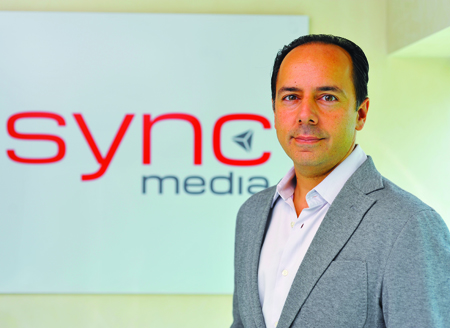The pay-TV battle is eliciting much more interest. BeIN and OSN are locked in a head-to-head battle while MBC is rumoured to be watching from the wings with a potential arsenal of MBC HD and Saudi football channels under its disposal.

There is a scene in Star Wars, where the inhabitants of a planet are looking up at the night sky as a massive battle rages between Star Destroyers and rebel Star ships. The winner would get control of the planet and all its inhabitants. Most Arab broadcasters must feel like those helpless inhabitants at the moment as the future of television is redefined in multiple battles of equally epic proportions.
In one battle, Google and Facebook are entangled in a digital turf war that will ultimately determine the gatekeepers of content discovery and consumption not only on mobile but also on that large screen in the living room that used to be the only gate. This digital battle has been blissfully ignored or dismissed by most Arab broadcasters. The typical broadcaster in the Middle East is not lying awake at night fretting about the advertising budgets shifting to digital, as all those dollars must be coming from print. On-demand content is for teenagers. Facebook is a tech company, not a media company. Snapchat is just an EPG that uses video for tune-in info. There is no need to own any of your content, just license it while repeating the Content is King mantra.
The pay-TV battle, on the other hand, is eliciting much more interest. BeIN and OSN are locked in a head-to-head battle while MBC is rumoured to be watching from the wings with a potential arsenal of MBC HD and Saudi football channels under its disposal.
BeIN began its foray into non-sports entertainment by aggressively courting FTA channels to switch over to its pay offering. After some initial big bangs with Fox, Turner and Fatafeat joining the new platform, beINs attention seems to have shifted to adding properties from traditional pay-TV networks such as AMC and Discovery. Meanwhile, OSN has extended its studio deals, signed a multi-year exclusive deal with HBO, and licensed new channels.
The beIN-OSN competition has certainly been a boon for channel owners as the entertainment pay-TV market shifted from a one-horse race to a competitive environment, where premium channels can expect a bidding war to raise licensing fees. Similarly, Arab producers are anticipating beINs foray into original Arabic content to increase the production sectors revenues in the face of declining demand from FTA channels.
While the face-off between the two pay-TV heavyweights will undoubtedly increase pay-TVs share in the Middle East, beIN and OSN on their own are not enough to dislodge the dominance of FTA. Even if several more FTA channels make the switch to beINs pay platform, there really is only one broadcaster that can tip the scales: MBC. Only if MBC abandons the FTA sector will the regions broadcasting dynamics shift.
MBC certainly has multiple reasons to prefer pay-TV over FTA. The successful launch of MBC HD channels via a soft-pay mechanism unlocked new revenues beyond advertising. The Saudi League rights acquisition, an expensive multi-year deal, makes much more sense when it generates pay-TV subscription revenues. While FTA satellite has been essential for the growth of private broadcasters like MBC, its indiscriminately wide footprint makes it difficult to extract advertising revenues from markets outside KSA. Subscription revenues would add some stability to the volatile advertising revenues in order to support ever increasing content costs. Decoders with IP connections would provide MBC with valuable viewing data. Rolling out digital SVOD, OTT and/or TV-everywhere products would be more efficient in a pay-TV environment,
Yet while MBC has much to gain from a potential shift to a pay-TV model, it also has the most to lose. Transitioning to a pay-TV platform takes time to establish distributors, install decoders, execute marketing campaigns and alter consumer habits. This period would undoubtedly see a drop in both audience share and revenues while launch costs are at their highest at a time when advertising revenues are already suffering. More importantly, the low entry hurdles in FTA broadcasting make it likely that new competitors would quickly attempt to fill the void left by MBC.
While MBC would have a brand and content advantage, it would have a disadvantage in reach while consumers considered the shift from FTA to pay.
There are ways to mitigate these risks. A gradual rollout of pay-channels could stagger the transition. The acquisition of an existing pay-TV platform would accelerate the rollout. Regulatory changes may make it more difficult for new entrants to launch or grow rapidly. Pre-commitments from advertisers to the new platform could be negotiated in return for favourable rates or the prospect of data sharing.
One thing is certain; the next 12 months will be interesting to watch for the inhabitants of planet Media.
Karim Sarkis is CEO of Sync Media.
















































































